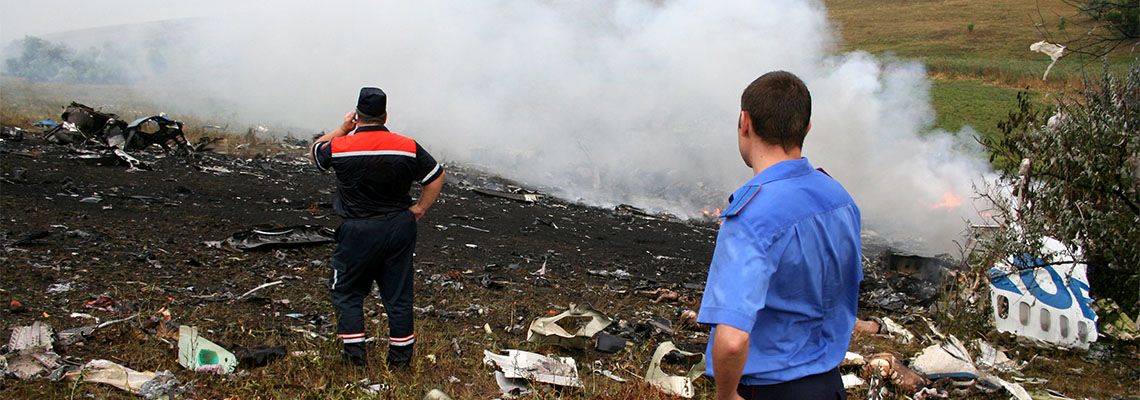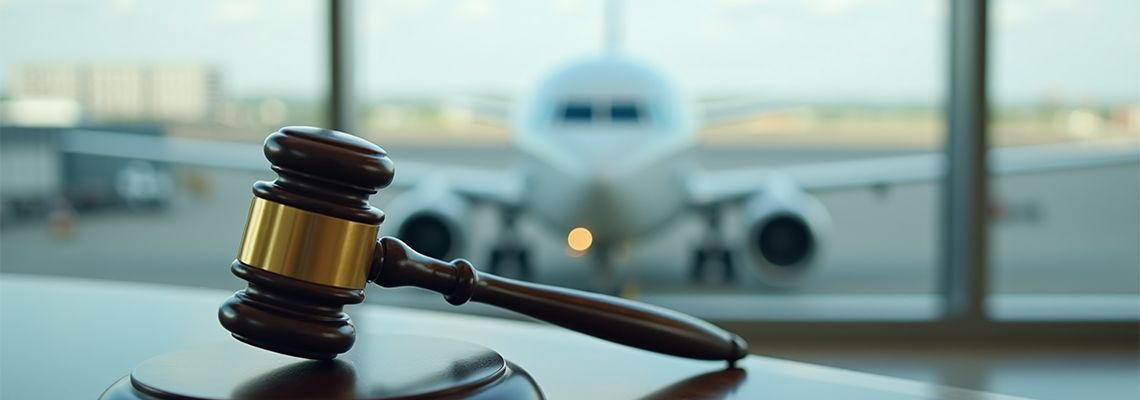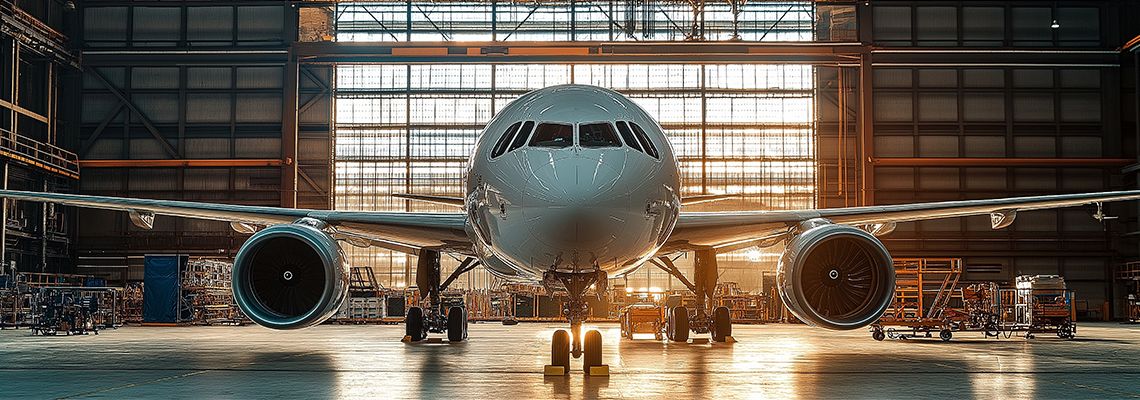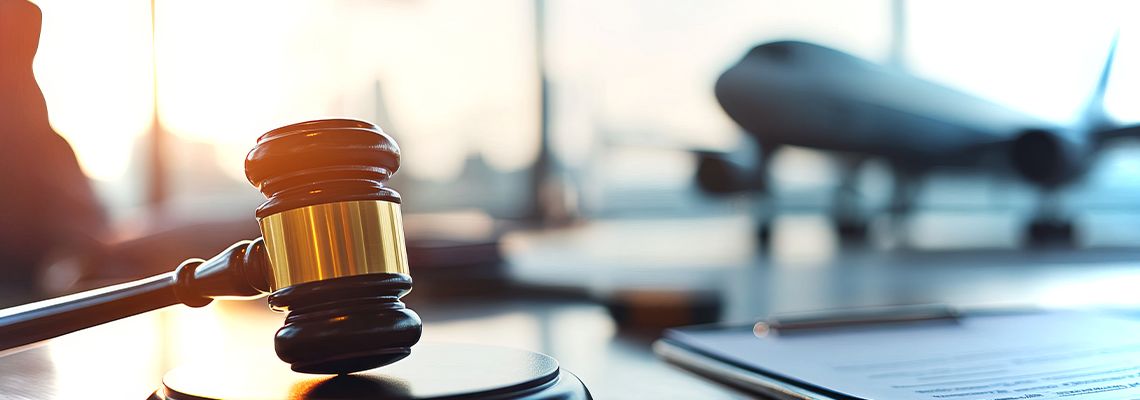Protecting intellectual property (IP) in the aviation industry is essential for pilots, mechanics, and companies alike. Whether it's a new design, a proprietary maintenance process, or advanced aviation technology, safeguarding these innovations is critical for maintaining a competitive edge and ensuring long-term success.

Who's Liable After a Plane Crash?
As an involved aviation professional, you might be feeling overwhelmed and emotional after a plane crash. The possibility of being held legally liable can easily compound these feelings.
However, you need to understand that you do have rights and options when involved in such a tragic incident.
Obviously, you have the right to an attorney, and the legal team at William G. Harger & Associates, PLLC has the resources, experience, and knowledge to craft a solid defense to protect your rights.
Who Is Liable After a Plane Crash?
Pilots and maintenance professionals have a substantial duty of care. Their negligence can contribute significantly to causation of an accident. This could include failing to adhere to aviation regulations, or not exercising reasonable care.
Other aviation professionals, such as air traffic controllers, dispatchers, weather service providers, and line services, to name a few, can also have a degree of responsibility for causing accidents.
Similarly, aircraft owners could bear significant responsibility. They are obliged to maintain their aircraft properly and address any known issues promptly. Failure in these duties can result in serious consequences, including possible liability for accidents.
And certainly aircraft and engine manufacturers, as well as avionics manufacturers, can also be held accountable if a defect in the design or manufacturing process contributes to a crash.
Common Reasons for Plane Crashes
Determining the cause of an airplane crash is a difficult process, often requiring extensive investigation. Here are some common reasons that can lead to such unfortunate incidents:
Pilot Errors: Poor preflight inspections, flying into unsafe weather conditions, navigation errors, failing to keep a lookout for other aircraft, or any other form of negligence can result in an accident. The pilot-in-command always bears the responsibility for how an aircraft is operated.
Flight Planning. While rare, negligent flight planning services, such as suggested routing or fuel requirements, can result in crashes. Third-party flight planning services must be aware of this.
Faulty Equipment or Missing Equipment: Aircraft are complex machines that rely heavily on their various components being in an airworthy condition. Any equipment failure or missing parts can potentially cause catastrophic problems.
Violation of FAA Regulations: The Federal Aviation Administration has strict regulations to promote aviation safety. Non-compliance with these rules can result in serious consequences, including anything from a violation to an accident.
Structural or Design Problems: Defects in the design or manufacture of an aircraft or any of its components can have disastrous consequences.
Negligence by Air Traffic Controllers: These professionals play a crucial role in maintaining air traffic order and safety. Negligence or errors do happen.
Negligence in Maintenance or Repair: Proper maintenance and repair of an aircraft and all of it systems and components are essential for safe operation. Negligence in these areas can lead to mechanical failures and, in turn, accidents.
Negligence in Fueling the Aircraft: Incorrect or negligent fueling procedures can cause engine problems and potential crashes.
It's important to note that each accident is unique and may be caused by a combination of factors. Thorough investigations are conducted after every crash to determine the exact cause and to prevent future accidents.
Determining liability after a plane crash involves a detailed investigation and analysis of various factors. Any of the aviation professionals listed above, as well as many others, can be held responsible depending on their level of negligence or contribution to the accident.
Possible Defenses
When faced with liability for an air crash, there are many possible defenses that can be legitimately raised. To name a few:
Product Liability Laws: Manufacturers or maintenance suppliers may argue that they are not liable under various product liability laws of the state).
GARA (General Aviation Revitalization Act of 1994): Generally speaking, GARA is a federal law that bars lawsuits against the aircraft or component manufacturer after the item is 18 years old or older at the time of the accident.
Equity Holder Immunity: Individual equity holder immunity should apply for any owners who are not directly responsible for negligence. This would apply, for example, to any members of an LLC that were not involved in negligence. However, every person is always responsible for their own negligence. So, if you are a member of an LLC and your personal negligence contributes to an accident, you will still be responsible, while the other members will likely not be responsible. There are limits, however, to this defense.
Proportionate responsibility. If the injured person contributed to the cause of the accident, or even if another party contributed negligence of their own that was involved in causation, you are not responsible for their proportionate share of responsibility.
William G. Harger & Associates, PLLC, led by Bill Harger, a former professional pilot and mechanic, provides vigorous representation in all types of aviation litigation cases.
Let William G. Harger & Associates, PLLC Assist You
With over 30 years of experience handling aviation-related litigation and transactions, the firm has the knowledge and resources needed to handle virtually any type of aviation claim and defend against wrongful death and injury lawsuits, as well as representing pilots, mechanics and aircraft owners against regulatory violation claims. We also provide guidance and counsel regarding aircraft transactions.
Clients the firm can assist:
Airports
Charter operators
Aviation employment and staff leasing companies
Aviation maintenance companies and technicians
Manufacturers
Aviation insurance companies and their insureds
Skydiving operators
Aircraft owners
Pilots
A&P mechanics
Other parties in matters involving aviation issues
Proudly Protecting Aviation Professionals
William G. Harger & Associates, PLLC, based near Houston, Texas, is an experienced source of legal support for those involved in aviation-related issues across the United States. With Bill Harger, an active ATP-rated pilot, aircraft owner, and A&P mechanic at its helm, the firm's unique blend of legal and aviation expertise sets it apart.
The firm serves clients from the areas of Houston, Dallas, San Antonio, Austin, and throughout Texas, as well as across the United States. We also have many international clients from Latin America, Europe and Australia. We are here to help you with your aviation legal problems.
RECENT POSTS
Aircraft transactions can be complicated and involve significant financial risks. Whether you are buying or selling an aircraft, conducting thorough due diligence is a critical step in the process.
Airline employees play a critical role in ensuring the safety, efficiency, and success of the aviation industry. However, their responsibilities also expose them to unique legal risks and challenges. From pilots to flight attendants, mechanics to ground crew, aviation professionals need to understand their rights and protections when navigating lawsuits or disputes within this industry.




